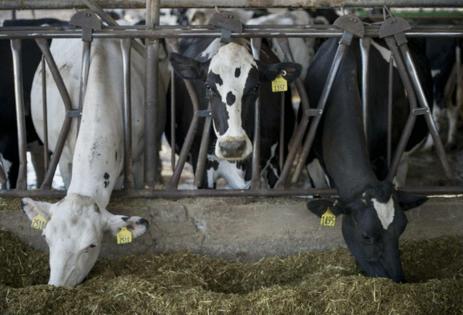Environmental groups challenge update to California's low-carbon transportation rules
Published in News & Features
SACRAMENTO, Calif. — Environmental groups challenged California’s leading climate regulator Wednesday, alleging in new lawsuits that a recent update to a leading climate program will create additional pollution in the state’s San Joaquin Valley.
Two separate complaints allege the California Air Resources Board did not assess or alleviate environmental harms the new transportation pollution rules under the Low Carbon Fuel Standard (LCFS), related to biofuels made with crop and animal waste, will cause.
“CARB must acknowledge the environmental and public health harms caused by its prioritization of pollution-heavy practices over sustainable solutions,” said María Arévalo, a spokesperson for environmental justice group Defensores del Valle Central para el Aire y Agua Limpio. “Our concerns have been ignored.”
One lawsuit was filed by the Leadership Counsel for Justice and Accountability on behalf of Food & Water Watch, the Animal Legal Defense Fund and Defensores del Valle Central para el Aire y Agua. The other was filed by Earth justice on behalf of Communities for a Better Environment.
The Air Board declined to comment on the lawsuits but defended the program as a “successful policy tool among California’s portfolio of innovative measures to address climate pollution and improve air quality.”
In November, the Air Board voted to strengthen the LCFS, which aims to subsidize low-carbon fuels and reduce greenhouse gas emissions from the transportation sector, by requiring that cars, trucks, trains and airplanes be powered by increasingly clean fuels.
The program first created in 2011 is a $2 billion credit trading system that offers companies financial incentives to produce less-polluting transportation fuels such as biofuels made with crop and animal waste.
The program update faced controversy over its potential to raise gasoline prices, as well as environmental harms from biofuels. Roughly 80% of the program’s billions in annual credits go to the renewable natural gas, biodiesel and renewable diesel industries.
CARB staff estimated new changes to tighten the program could cut 558 million metric tons of carbon emissions by 2046 by supplanting gasoline and diesel with plant and animal waste biofuels, electric vehicles and hydrogen.
Supporters of the update included biofuel producers, oil companies and electric vehicle manufacturers who say they depend on program credits to invest in low-carbon fuel alternatives.
Environmental critics have argued these fuels perpetuate harmful waste practices in some of the most polluted regions of California, can lead to food shortages abroad and contribute to global deforestation.
The petition by Leadership Counsel found that the Air Board violated the California Environmental Quality Act by failing to assess and respond to comments regarding environmental impacts of fuel derived from farm factory manure in Central Valley dairies.
They allege that the agency offers overly generous subsidies for farmers who install expensive industrial manure management systems to capture methane for use as fuel. These systems affect disproportionately Latino communities in the agricultural San Joaquin Valley.
Environmental laws “require CARB to acknowledge the obvious — that providing substantial financial benefits for the production of fuel derived from manure at factory farms incentivizes factory farm expansion,” environmentalists wrote in the complaint.
But the agency “fails to adequately evaluate and mitigate their impacts, including increased local air pollution, impacts to groundwater, and climate change,” they determined.
The Earth Justice complaint is similar but related to crop-based biofuels such as renewable diesel, which they say “cause a host of adverse impacts to vulnerable communities when they are grown, when they are refined, and when they are combusted in vehicles.”
Environmental justice advocates allege the Air Board failed to recognize the gravity of those impacts in its environmental review of the program and did not take steps to alleviate them before approving the changes.
“The LCFS amendments reward polluters and foul our air,” said Nina Robertson, senior attorney at Earthjustice. “The changes lock in billions for biofuels refined in the East Bay and Los Angeles and burned throughout the state, and CARB failed to inform the public about these impacts.”
_____
©2024 The Sacramento Bee. Visit sacbee.com. Distributed by Tribune Content Agency, LLC.







Comments